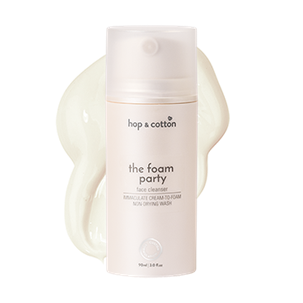Jabberwocky

Beware the Jabberwock, my son!
The jaws that bite, the claws that snatch!
Lewis Carroll, Jabberwocky, Through the Looking-Glass, and What Alice Found There
What do the Jabberwock and chemicals have in common?
They both seem scary, until you realise what they are.
But I can’t even pronounce it!
Punica granatum, alpha-tocopherol, ascorbic acid. Foreign-sounding ingredients can seem intimidating. Not something you want on your face!
But a lot of them are actually familiar to you. The above ingredients are also commonly known as pomegranate, vitamin E, vitamin C.
This misconception happens because cosmetic ingredients are not usually listed as their common names. Instead they follow a universal naming system for cosmetics, abbreviated as INCI. They take on their scientific or Latin names, enabling them to be recognised internationally regardless of language.
As you can see, the pronounceability of an ingredient is not an indication of how good it is for skin. It’s simply for identification purposes.
Chemicals = Bad for skin
Are chemicals bad for skin?
First of all, the term ‘chemical’ is heavily abused in the beauty industry. With every other product labelled ‘natural’, it implies that anything that is not natural –automatic assumption: chemical– means not natural and therefore bad for skin.
Nevertheless, everything in any cosmetic product is a chemical. Every living being and every man-made entity is physically made from a complex mixture of chemicals. Without chemicals, we cannot exist.
Therefore, not all chemicals are bad for skin. In fact, the right kind of chemicals are needed and hugely beneficial for our skin.
The importance of natural
Let’s take a look at that ‘natural’ body cream.
It might contain olive oil extracted from its fruit, beeswax from honeycombs and emulsifier from coconut oil. However, in order to obtain these ingredients, they would have been extracted and refined from their sources in nature to make them useful in cosmetic products. Just throwing an olive, honeycomb and coconut together is not going to give you that cream!
These processing introduce physical and/or chemical changes to the properties of the ingredient from its naturally occurring state. Would you still consider them to be natural then? How much change can occur before an ingredient is no longer considered natural?
Before you head off on a furious google search, I’ll tell you right now that there is no fixed definition for ‘natural’ or ‘organic’ in the cosmetic industry. Different organisations like ACO, Ecocert and NaTrue, have their own criteria and standards.
So if you think about it, ‘natural’ is not a meaningful criteria to use in choosing skin care products.
Beware the Jabberwock
We tend to be afraid of things we do not fully understand. The abundant amount of misinformation out there has caused so many people to have the wrong idea about chemicals in cosmetic products. It also doesn’t help that it isn’t easy to find reliable information on the internet.
Chemicals have therefore suffered the same fate as the Jabberwock- seemingly villainous and scary when in fact, they are really not.
You’d probably avoid an Oryctolagus cuniculus if you didn’t know what it was, wouldn’t you?


